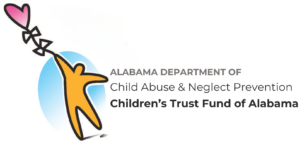While I was in rehab, we attended local 12-Step meetings three times each week. One of these meetings was a women’s 12-Step study where we read the Big Book of Alcoholics Anonymous and discussed the 12 steps. Since it was my first time trying to get sober, I had personally never been through the steps before. However, many of my peers, including the women leading the meeting, had been through their steps at least once.
One thing that stuck out to me about this 12-Step study was how scary everyone made the fourth step sound. “Made a searching and fearless moral inventory of ourselves” sounded ambitious to me, like finally attempting to climb a mountain that I have been too scared to climb all of my life. The step itself in the way it was written did not seem scary to me, but the way everyone talked about it made it seem quite intimidating.

I remember hearing things like: “My fourth step made me realize how much of a terrible person I was,” “I relapsed in the middle of my fourth step,” and “it took me months to finally finish my fourth step.”
My own sponsor even shared a personal story with me about how she had intentionally left one piece of information off her fourth step, proceeded to lie to her sponsor about it, and started drinking again. I certainly did not want to go down that road, but I also was not thrilled about admitting all of the things I had done to my sponsor, a woman who I had only known for a month at the time.
In the end, I not only found that doing my fourth step really was not as torturous as so many people made it seem, but also that sharing my fourth step with my sponsor was not scary at all; it was healing.
What is the Fourth Step?
The fourth step of AA as described in the Big Book is a “personal inventory.” The text explains that the purpose of a commercial inventory “is to disclose damaged or unsalable goods, to get rid of them promptly and without regret.” Businesses that do not take inventory may run out of products, have problems with manufacturing, shipping, and distribution, and eventually go broke. The same can be said for people who rely on a 12-Step program.
The fourth step applies the same objectives of a commercial inventory to your personal life. It involves making a list of the people, places, and ideas that you have caused harm to, or that provoke feelings of anger, resentment, and fear. After making this list, you analyze each item on the list to see how each item affected your life and decisions. Then, you look at the role you played in each situation that inflicted harm or caused you to harbor resentment.
This step is not about beating yourself up or sulking in the pain you have endured and/or caused in the past. Instead, it helps you purge those things and helps you grow. The fourth step helps you become more self-aware by bringing to light some of your more undesirable characteristics, so you can begin to change. It also helps prepare you for the rest of the steps, which involve defects of character, making amends, and developing a relationship with a Higher Power.
Taking My Personal Inventory
Everyone does their fourth step differently, and there is no one-size-fits-all formula. When it came time to do my fourth step, my sponsor read Step Four with me in the book and handed me several pieces of paper. On the papers were charts broken down into four different categories. I had charts labeled “resentments,” “fears,” “sex,” and “harms.”
I was instructed to start with resentments before moving onto fears, sex, and then, harms. I was to make a list of all of the people, places, and institutions/ideas I was resentful towards, and write a brief description of why I was resentful towards them. Then, I had to ask myself what role I played in forming the resentment: was I selfish, dishonest, inconsiderate, or fearful? I had to check off boxes for each one that applied for each resentment, and repeat the process for each category.
My sponsor told me I had one week to complete my fourth step – no excuses. If it was not complete within a week, or if I did not show up to do my fifth step, she would no longer sponsor me. Clearly, she meant business.
Resentments were easy for me. I knew who made me angry, and I knew who did me wrong. I also had no problem putting it on paper and sharing it with another person, because it was the other person’s fault, right? I quickly found out I was wrong. Most people I was resentful towards had not done anything wrong – they just did not do things how I wanted them done. Writing down my list of resentments taught me that I can be extremely selfish, demanding, and inconsiderate of other people’s needs.
The sex inventory was also pretty easy for me. I did not have to write down everyone I had been intimate with – only people whom I intentionally hurt by means of flirting or fornicating. As far as fears ago, that took a little more soul-searching, but it was not necessarily scary. All I had to do was write down my fears on paper and ask myself why I had that fear – I did not have to actually face that fear right away.

In my experience, the fourth category, harms, was the most difficult part of the fourth step. This was a list of all the people I had harmed that
did not belong in any of the three prior categories. On this list were former employers I took money from, friends who I lied to, and innocent acquaintances, who did absolutely nothing wrong yet still suffered the wrath of my addiction. Still, I knew what I had done, and writing it down on paper was not hard. The hard part was looking at all of the people I had hurt for no good reason other than my own selfishness and addiction. The hardest part was seeing all of these undesirable and dishonest moments together on a single piece of paper.
Even though a week seemed like an outrageous demand for the step that everyone made seem so insurmountable, I only needed four days to complete it. And, when it was done, I did not hate myself – I felt eager to start becoming a better person.
Sharing My Fourth Step With My Sponsor
Sharing your fourth step with your sponsor is a part of Step Five: “admit to God, to ourselves, and to another human being the exact nature of our wrongs.” Many people are afraid of doing this, because they are afraid of being judged. However, a sponsor is not there to judge you – they are there to take you through the 12 Steps. In most cases, your sponsor will have done many of the things you listed on your fourth step as well, so they will be able to relate and empathize with you on a personal level.
I was lucky to have a sponsor, who stressed the importance of a thorough fourth step and did everything she could to make sure I was comfortable and relaxed when it came time to share my inventory with her. One afternoon, we set aside several hours, set up our chairs on the beach, and got started.
Sharing my fourth step with my sponsor took a total of four hours. We went through each item on my list, discussed each one, and talked about the character defects associated with each person, place, or event. She listened, asked questions, and even told stories of her own. She pointed out certain defects that I had previously acted out on that I was not aware I had. She extended a great deal of love to me as I revealed my worst characteristics to her, and she related to many of the things listed on my inventory.
When we were finished my sponsor gave me instructions on how to finish step five and move onto step six before leaving me to meditate by myself for an hour. I got to talk to my Higher Power about my fourth step, review my inventory to see if I had left anything out, and spend time in meditation. After that hour, I was done. I had just completed the fourth step that I had heard so much about, and it was not as scary as I expected it to be.
My Fourth Step Takeaways
In the rooms of AA, you may hear many things about step four. All the negative things I had heard made me nervous about my fourth step, but my sponsor was there to reassure me that as long as I was willing and disclosed everything that came to mind, I would be okay – and I was.
When I first started going to AA, I remember feeling like there was a lot of pressure to do everything perfectly. Most of that pressure was pressure that I placed on myself by comparing myself to other people. I was so afraid that if I made a mistake and left something off my fourth step I would relapse, but all I could do was write down the things that were fresh on my mind at that time. If I were to think of something that I left off of my inventory later down the line, all I had to do was add it to my list, call my sponsor, and talk to her about it.
After doing my first fourth step, the world did not come to an end and I did not drink. I simply learned more about myself, became more motivated to change, and continued on with the rest of the steps.
Written by: Melanie Childers
Melanie is a Licensed Professional Counselor who received her Master’s degree in Clinical Mental Health Counseling from The University of Alabama in 2015 with an emphasis in Marriage and Family Therapy. She has over 5 years of experience working with those who struggle with addiction and with couples and families. She is trained in EMDR therapy and has experience in working with people in the LGBTQ+ community. Melanie works under Lifeline Solutions, LLC, which has two locations serving communities in Birmingham and Tuscaloosa. For more information about psychotherapy services, contact Melanie at 205-614-2604or mchilders@lifelinesolutionsllc.com and visit www.lifelinesolutionsllc.com.









